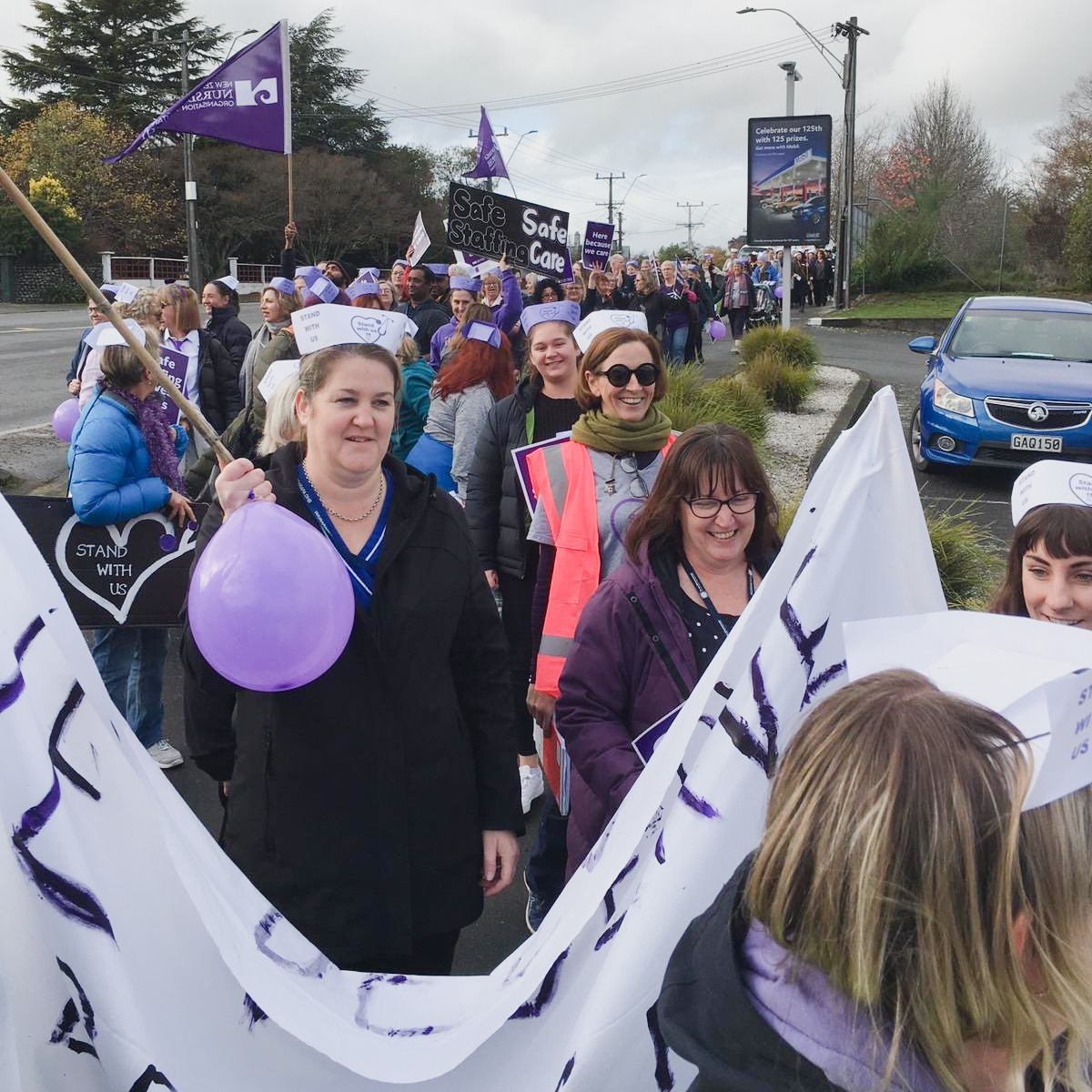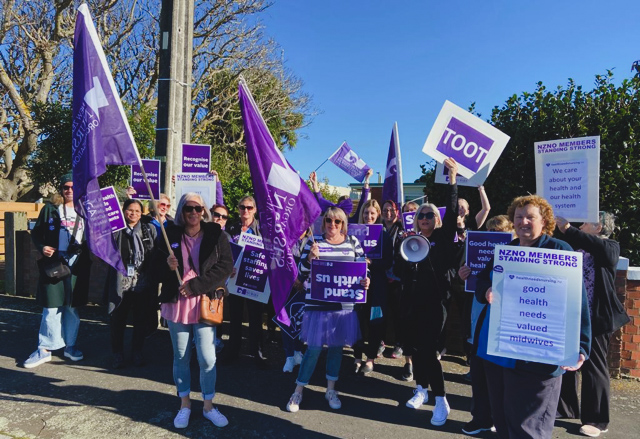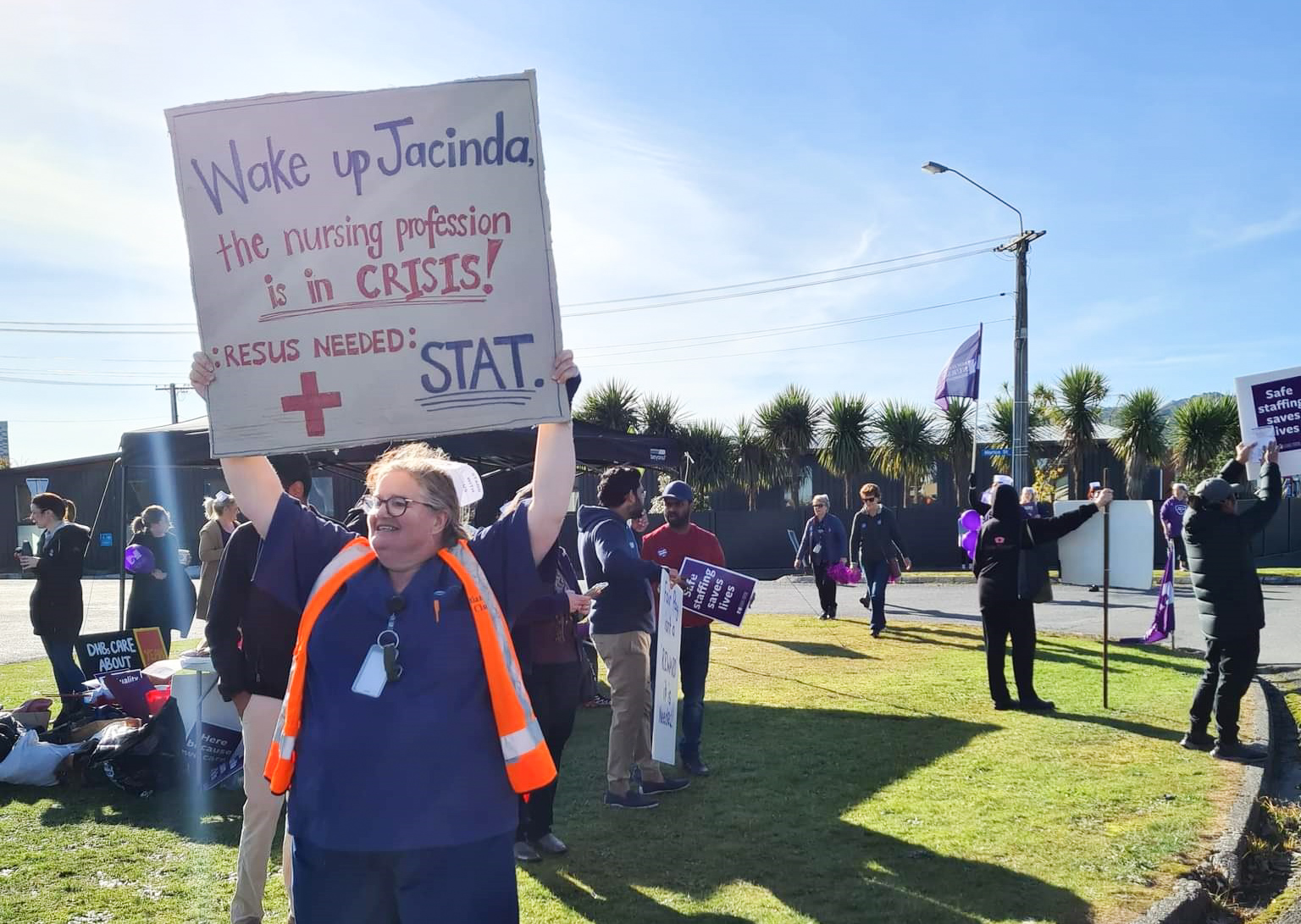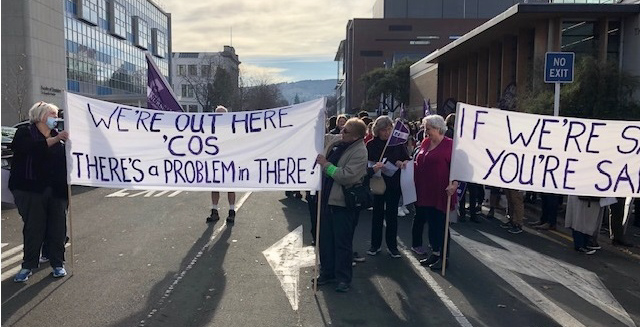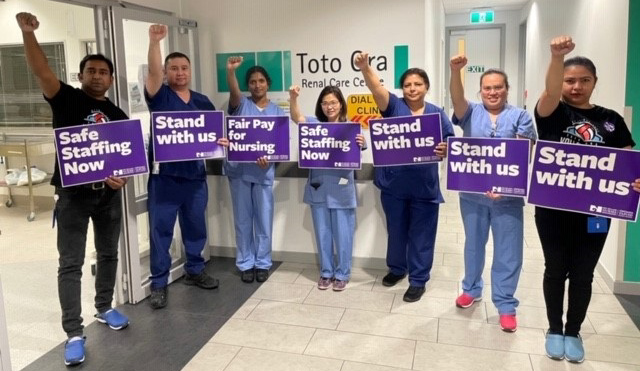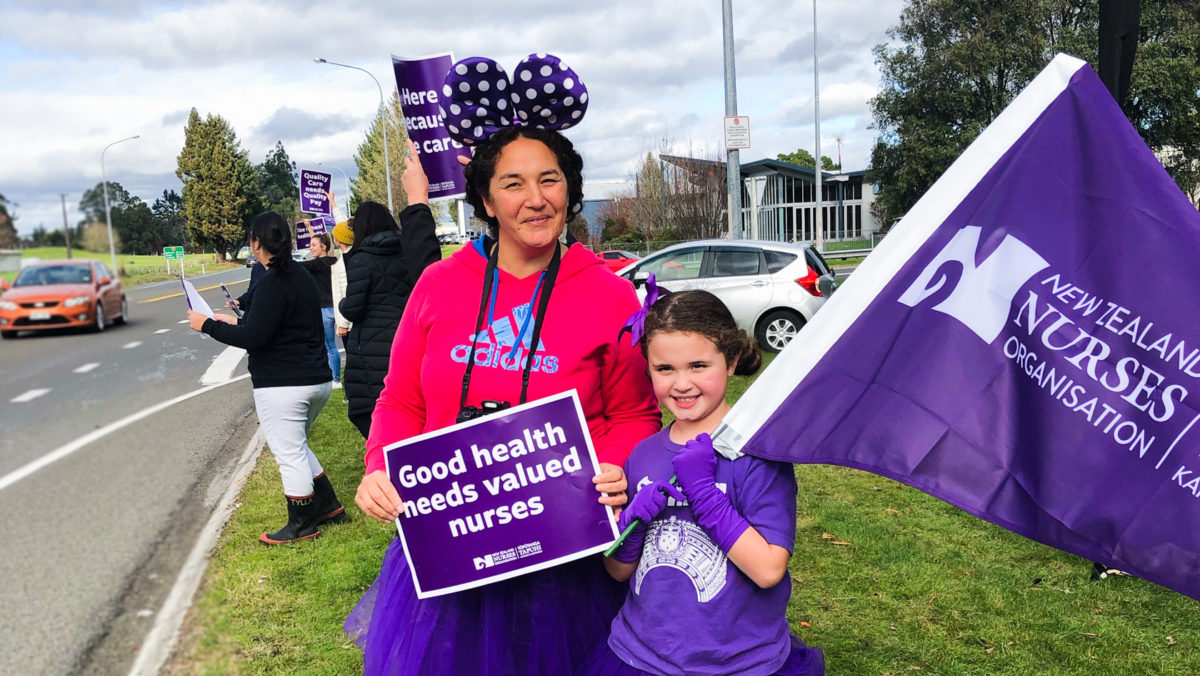
Kicking off at 11am, the strike by about 30,000 district health board (DHB) members aimed to gain better pay, conditions and boost patient safety.
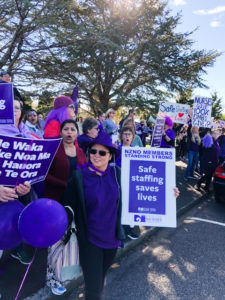
It came after lengthy negotiations, and an effective public sector pay freeze that came as a slap in the face to members.
In Wellington, Health Minister Andrew Little fronted on the steps of Parliament to a crowd of hundreds, which eventually drowned out his attempts to explain the Government’s position.
It came the day after Prime Minister Jacinda Ardern outed the NZNO initial bargaining position of a 17 per cent increase pay increase.
But far away from politicians fronting to the crowds in Wellington, NZNO members and their supporters were gathering outside hospitals, clinics, and marching on the streets in the four corners of the whenua.
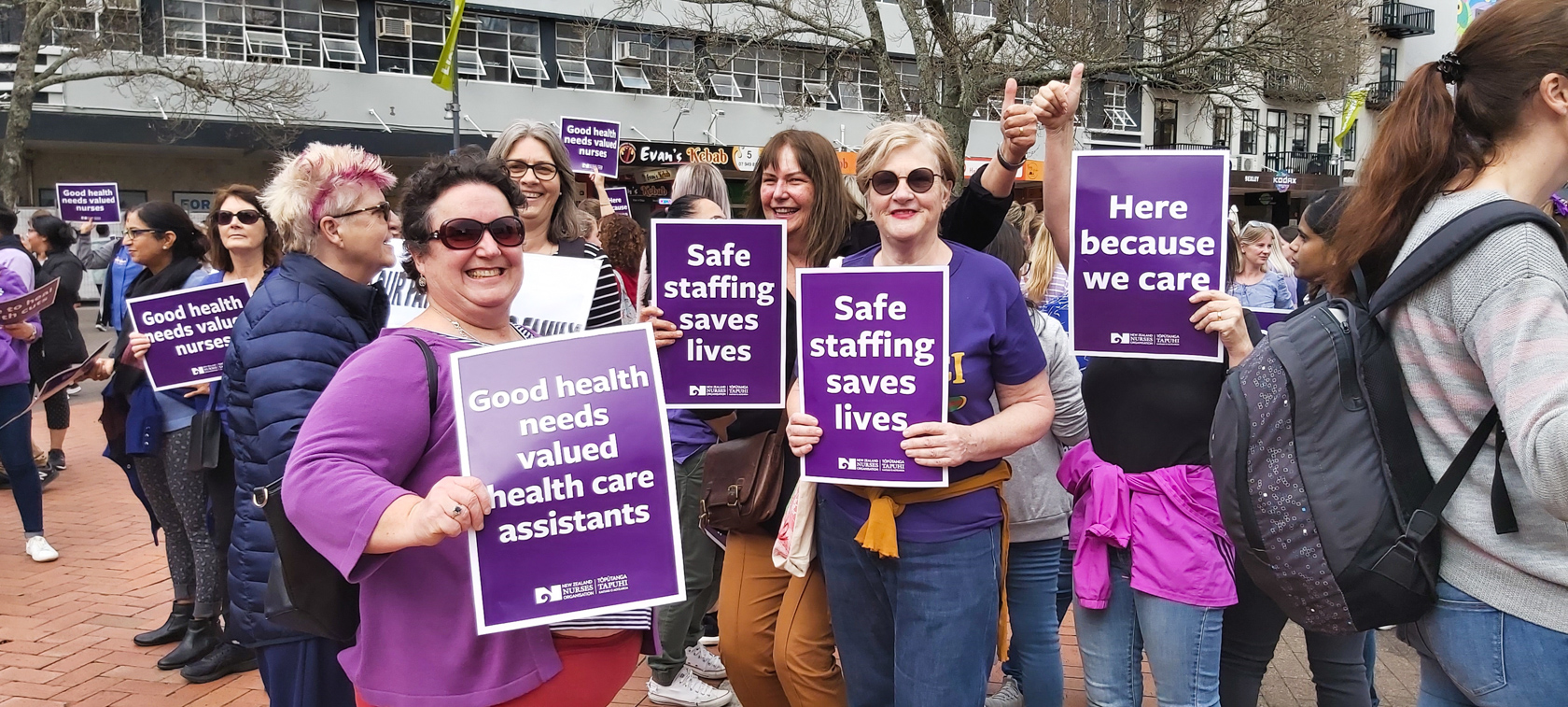
In Invercargill, 200 or so members stretched across two blocks as they marched from the hospital to city centre, organiser Colette Wright said. Nurses felt very supported by the public, with constant toots and waves, as well as by other unions who joined in, and local businesses which provided free kai.
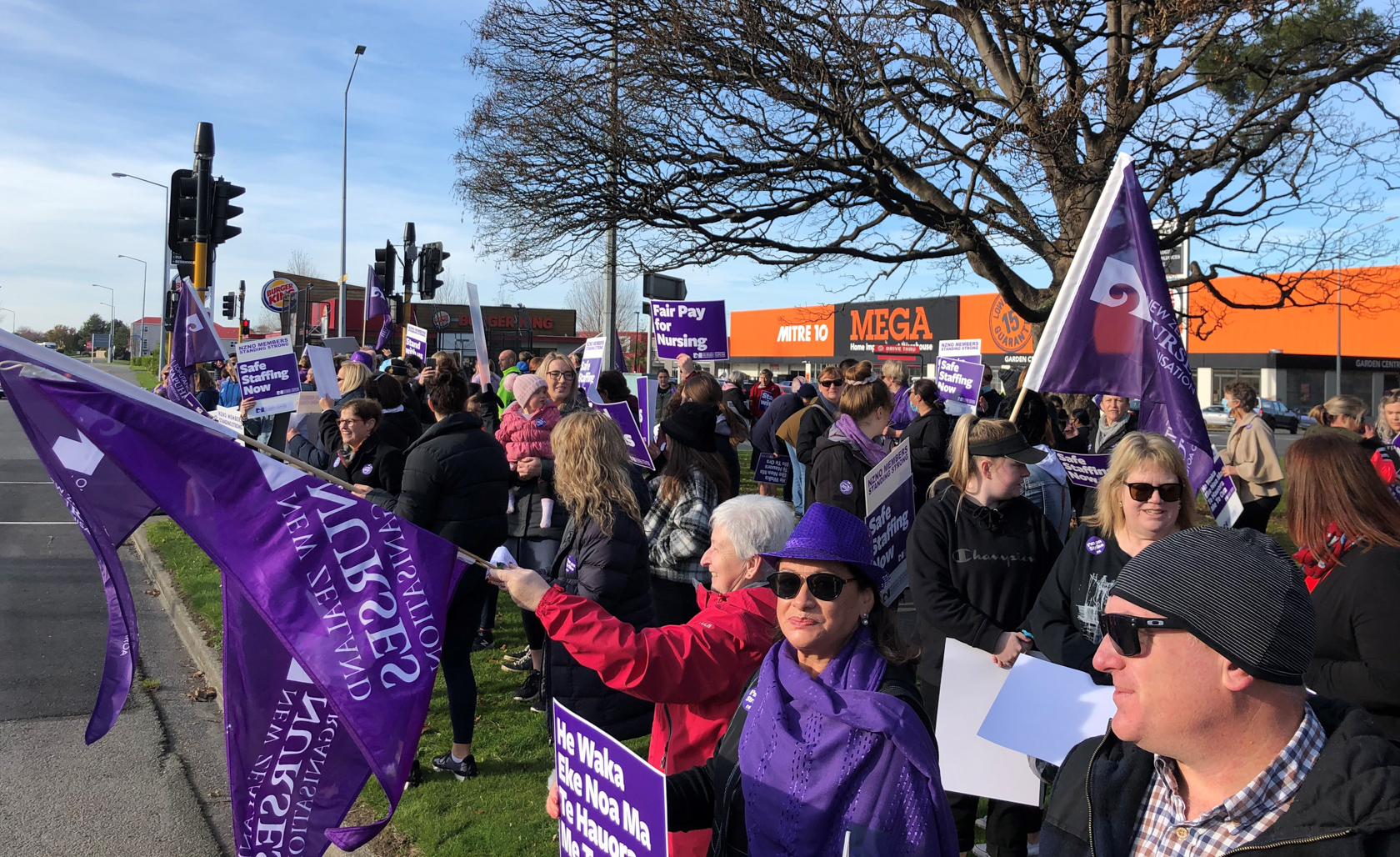
Whangārei organiser Odette Shaw said support from the public, police and ambulance staff was “amazing”, helping brighten up nurses as they marched on a “dreary” and rainy day. Member turn out across the four hospitals in Te Tai Tokerau was “great”, she said. “I was wowed with the turnout, creativity and resolve of our members – they loved it.”
Nelson organiser Shannyn Hunter said the day was “fantastic… such a strong show of solidarity from our health-care workers and such passion in their voices”.
In Timaru, there was a “fantastic” turn out of members who were “really fired up” and loud, as they marched from the hospital towards city centre, organiser Teri Essex said. The atmosphere was “charged” and public support “strongly felt”, she said. “Many members commented they are feeling much more passionate this time around. It was a great day and solidarity amongst members was really clear.”
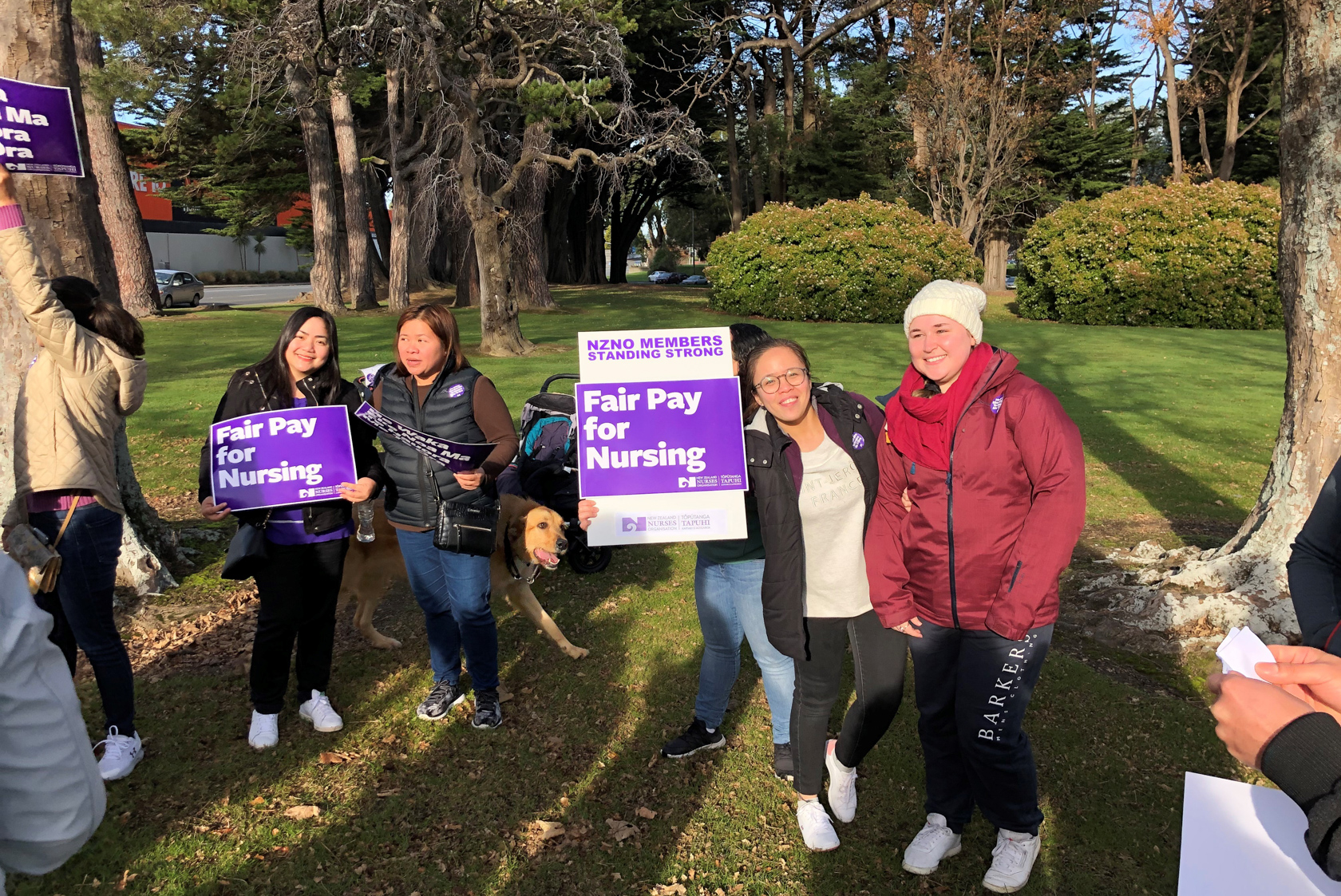
The enthusiasm and feelings were running high – but with the nation’s health tied up in the negotiations, so were the stakes.
